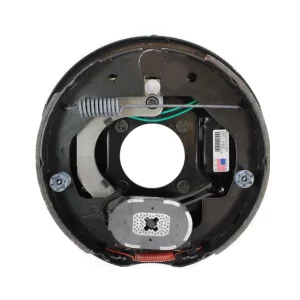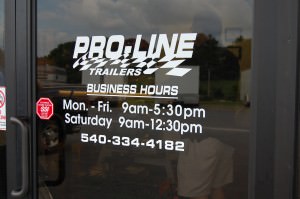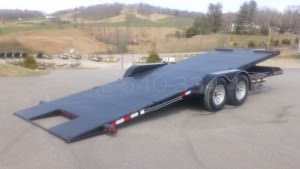Trailer Technology: How Do Electric Trailer Brakes Work?
Studies show that more than 164 million people enjoy outdoor activities every year. The Great Outdoors come in all shapes and sizes, but sometimes we need help getting our gear where it needs to be.
In such a situation, it’s ideal to use a trailer to help transport your goods. Trailers are ideal for large equipment, small vehicles, and in some cases even animals. But how do electric trailer brakes work, and how can you safely stop your trailer while you’re in motion?
If you’re curious to learn more about trailer brakes, we’re here to help. Read on to learn more about the different types of brakes and the proper techniques for trailer safety.
What Are Trailer Brakes?
To begin, what does “trailer brake” refer to?
Trailer brakes are thankfully easy to understand, as they refer to the brakes on a trailer. These brakes are similar to the brakes on your car, truck, or any other vehicle you’re using to tow a trailer.
Many vehicles will interact electrically with trailers. Most often, this is from wiring the trailer in with the vehicle. Some trailers have wireless connections and are instead controlled with a remote panel the operator holds.
How Do Electric Trailer Brakes Work?
The method in which trailer brakes function depends on the style of the brakes. The most common way is for an operator (the driver of the towing vehicle or a passenger) to have the control panel.
Using this panel, they can engage the brakes when necessary. However, this is less useful in the case of an emergency. The operator would need to react quickly enough to engage the brakes while already reacting to the emergency in the vehicle.
As such, it’s also common to have trailers that wire into vehicles. For most models, this is accomplished near the trailer hitch.
From here, your trailer will react to your vehicle’s braking and apply its brakes. Synchronizing the brakes in this manner helps to improve trailer safety and ensure safe braking.
Different Types of Trailer Brakes
There are three primary types of trailer brakes. These three are surge, electric, and emergency brakes.
Surge
Surge brakes act separately from your vehicle’s system. They’ll detect when your vehicle is slowing down and then begin to slow the trailer.
However, these trailers have a slight delay in detecting braking and slowing down. Due to this delay, you need to stop steadily and slowly to effectively transmit the “braking signal.”
Because of this factor, these brakes are lackluster in emergencies. If you need to slam on the brakes in your vehicle, your trailer won’t stop quickly enough.
Electric
Electric brakes are arguably the most common type of brakes. “Electric brakes” almost always refers to the brakes that wire into your vehicle’s brake system.
These are the brakes that will synchronize with your braking system and ensure safer braking. These are standard in most trailers.
That said, electric brakes are also often more expensive. Pay attention to what you’re buying and don’t cheap out when it comes to trailer safety.
Emergency
Emergency brakes are separate from other types of brakes. It’s highly uncommon for a trailer to not have emergency brakes. As such, you should find this on your trailer whether the primary brakes are surge or electric.
Are Trailers Safer With Brakes?
Yes, trailers are safer with brakes. As a rule of them, any trailer that is rated over 3000 pounds is required to have brakes.
Emergencies are easier to respond to if your trailer can brake. That said, don’t think that all trailers will have brakes.
If your trailer is for transporting larger, more delicate, or more important goods (animals, for example) then it’s best to have brakes. You should also ensure the trailer has effective emergency brakes.
For large trailers, we strongly suggest electric brakes for their synchronized braking with your vehicle. These brakes can stop some delicate cargo from shifting suddenly, protect living cargo, and make for a less dangerous driving experience.
What Trailers Don’t Have Brakes?
Some trailers are meant only to tow and aren’t as sophisticated. These trailers are often cheaper, but the lower price comes with safety risks.
Such trailers often have a strong metal frame and a pair of wheels. Single-axle trailers aren’t used to transport heavy goods or to transport them far distances, so brakes are less necessary.
Another example is a trailer that’s transporting goods that are less resistant to moving. A two-axle trailer is often utilized to transport small vehicles. Jon boats moving to a small jetty or motorbikes that are secured to the trailer are common items.
How to Drive Safely With a Brakeless Trailer
The most important thing for a brakeless trailer is to drive carefully. As your trailer can’t brake, you need to avoid any situation that would cause emergency braking.
For example, it’s strongly suggested that you avoid major highways or large roads. If a fellow driver swerves into your lane, controlling your trailer is dangerous and difficult.
Instead, try to use your brakeless trailers on smaller roads. Backroads or even dirt roads are a good place for a brakeless trailer.
Another way to avoid the need to use emergency brakes is by never driving too fast. Stay at or below the speed limit and consider using your emergency lights for other drivers. Doing so will let them know that they need to pass you rather than expect you to speed up.
Overall, you should try not to purchase a trailer that doesn’t have brakes. When buying a trailer, ensure that it at least has some form of emergency braking. If you use a trailer that doesn’t have brakes, simply drive safely and avoid situations that put you and other drivers in danger.
Towing On
How do electric trailer brakes work, and are they superior to other models? We suggest electric trailers, as they read the braking signal from your vehicle and synchronize their brakes for a safe and even braking process. Ensure that your trailer has effective emergency brakes and try to avoid any trailers with no braking system.
Interested in finding your dream trailer? Contact us to see what new, used, and custom trailers we can arrange for you.





